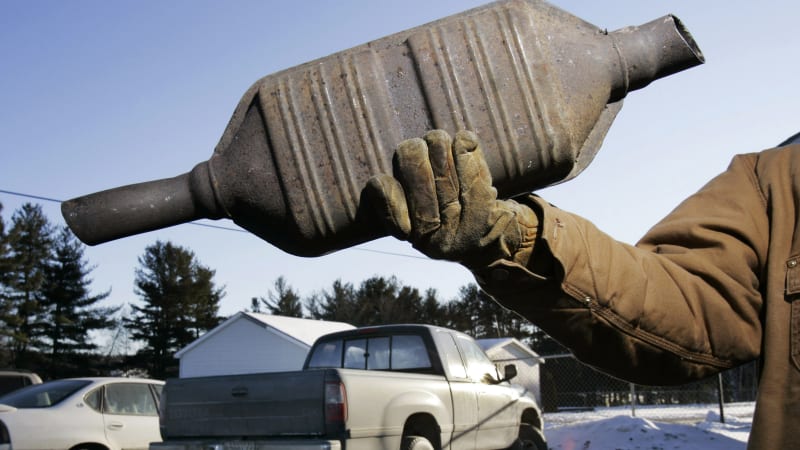The business models of thieves who try to sell stolen catalytic converters to scrap metal dealers in New Jersey have just become more challenging.
Legislation that makes it harder to resell the stolen emission
devices to businesses who buy them to extract valuable earth metals was
signed into law last week by New Jersey Gov. Phil Murphy. It takes effect immediately.
“By implementing guidelines on the sale and purchase of catalytic converters, we raise the bar for accountability, making it harder for criminals to profit from stolen converters and easier for law enforcement to bring them to justice,” Attorney General Matthew Platkin stated in a press release. A similar measure
aimed at thwarting cat thieves was put into effect last year in California.
Among the guidelines specified by the law is one that demands ownership verification when selling used catalytic converters to scrap metal businesses. Those dealers are now required to document the vehicle identification number and the certificate of title or registration from the donor vehicle. Fines are imposed on those who d isregard the new rules.
A study released this month by the National Insurance Crime Bureau found reports of stolen catalytic converters ballooned from 16,660 in 2020 to 64,701 last year, based on insurance-industry data. That study also noted that some metal recyclers will pay between $50 to $250 for a catalytic converter
“Replacing catalytic converters is not cheap,” the study observed. Costs can run between $1,000 and $3,500 or more to replace a stolen catalytic converter.
According to a report in the Morristown Daily Record, New Jersey was among the “theft hotspots” for catalytic converters last year, with a 152 percent increase over 2021. That was the second largest year-over-year increase behind only New York, at 184 percent, the report said.
